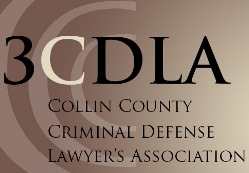There is no uniform answer as to what is best to do, because every situation is different. The best guide is to use good common sense. Obviously, it is helpful to remain polite and courteous with the arresting officer, but this does not necessarily mean you should submit to all of his or her requests. You will be able to deal with such an encounter more easily if you know what to expect, what choices you will have, and understand the potential consequences of your decisions.
If you are detained under suspicion of DWI, you will be questioned on the roadside about your recent alcohol consumption. The officer may request that you perform sobriety tests and submit to a breath test. You have the right to refuse these tests, though that refusal may later be used as evidence of your guilt. If the law enforcement officer has reason to believe that you are guilty of an offense, he or she can arrest you. Typically, you will be handcuffed and transported to a jail.
At the jail, you will probably be asked to submit to a breath test. If you refuse to submit to a breath test, you should expect local police to videotape your performance of a series of sobriety tests and your responses to questions about your driving, alcohol consumption, and physical condition. Normally, a videotape will not be made if you choose to submit to a breath test.
Although you must answer questions pertaining to identification, you may refuse to answer any other questions. You may refuse to perform field sobriety tests, and, unless a life-threatening injury has resulted from a collision, you may refuse to submit to breath or blood testing. (The officer may obtain a warrant to forcibly obtain a sample of your blood but this can take up to 2 hours.)
The reliability of the instruments used to measure breath specimens to determine body alcohol concentration is doubtful. While state-paid experts routinely testify that the Intoxilizer 5000 is accurate and reliable, several independent experts have expressed contrary opinions. Consequently, the results may be inaccurately high or inaccurately low. If you have any doubts about your ability to pass the test, do not submit to it before you consult with an attorney.
If you submit to a breath test and ”pass” it, you stand a much better chance of winning your case. Sometimes, in fact, charges are not filed at all. If you submit to a breath test and fail it, you can later challenge the accuracy of the device at trial. However, you should realize that a trial in which a breath test is challenged, tends to be much more expensive than one which does not involve a breath test because it is often necessary to hire private scientific experts to assist at trial.
You do not have the right to refuse to be videotaped, but you may refuse to perform the sobriety tests or answer any questions asked of you other than those about your name, age and identification. If you believe that you can preserve evidence favorable to your case by complying with the officer?s requests, you should do so. If you have any doubts, you should request to speak with an attorney before answering any questions. If proper procedure is followed, the arresting officer will terminate the interview whenever you request to speak with an attorney. If the officer fails to do so, continue to request permission to speak with an attorney first.









